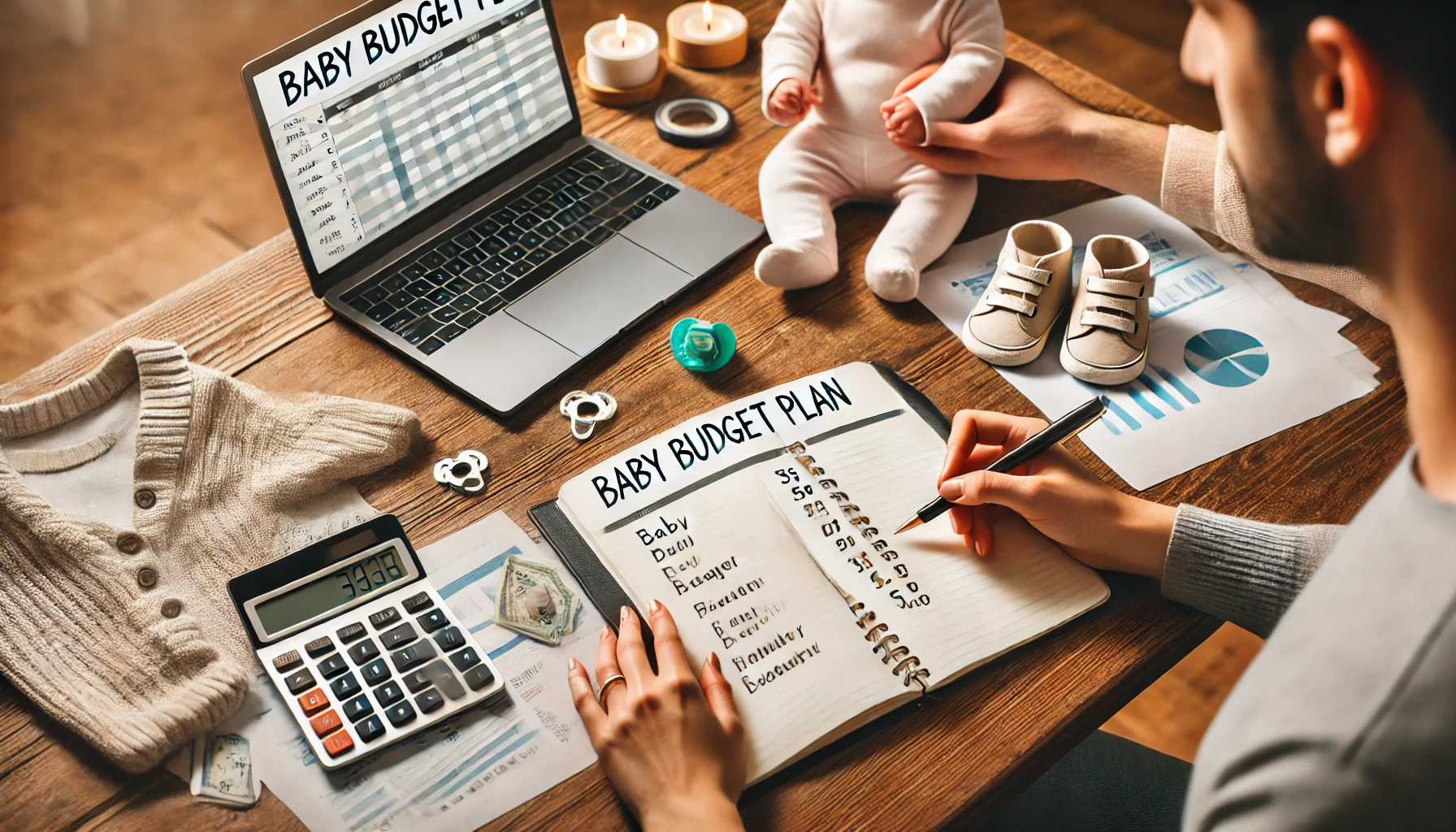Having a baby is a life-changing event, and financial preparation is key to ensuring a stress-free transition into parenthood. From medical costs to daily expenses, raising a child requires careful planning.
In this guide, you’ll learn how to financially prepare for having a baby, manage costs, and build financial security for your growing family.
Step 1: Estimate the Costs of Having a Baby
Understanding the financial impact of a baby helps you plan ahead.
📌 Common Baby-Related Expenses:
✔ Medical Bills – Prenatal care, delivery, pediatric visits.
✔ Baby Essentials – Diapers, clothes, crib, stroller.
✔ Childcare Costs – Babysitters, daycare, or parental leave.
✔ Health Insurance – Adding your baby to your plan.
✔ Long-Term Costs – Education, savings, and emergency funds.
💡 Tracking expected costs helps you prepare your budget!
Step 2: Build a Baby Fund
Having extra savings ensures financial stability before your baby arrives.
📌 How to Save for Baby Expenses:
✔ Open a separate savings account for baby costs.
✔ Set up automatic transfers from your paycheck.
✔ Cut unnecessary expenses and redirect savings to the baby fund.
💡 Aim to save at least 3-6 months of baby-related expenses before birth!
Step 3: Review Your Health Insurance Coverage
Medical expenses can be one of the biggest costs of having a baby.
📌 Steps to Reduce Medical Costs:
✔ Check your insurance plan to see what’s covered.
✔ Find out the cost of delivery at your chosen hospital.
✔ Consider opening a Health Savings Account (HSA) for tax-free medical savings.
💡 Knowing your out-of-pocket costs helps you plan for medical bills!
Step 4: Adjust Your Budget for Baby Expenses
Your budget will change as baby-related expenses increase.
📌 How to Adjust Your Budget:
✔ Reduce non-essential spending (dining out, entertainment).
✔ Plan for recurring costs (diapers, formula, baby gear).
✔ Set up a childcare budget if you’ll need daycare.
💡 Use a budgeting app to track spending and adjust as needed!
Step 5: Plan for Parental Leave and Income Changes
Parental leave affects your income, so it’s important to prepare.
📌 How to Financially Plan for Leave:
✔ Check your employer’s paid leave policy.
✔ Save extra to cover unpaid leave periods.
✔ Explore remote or flexible work options if needed.
💡 A financial cushion helps you take time off without stress!
Step 6: Buy Baby Essentials Smartly
Avoid overspending by buying only what’s necessary.
📌 Money-Saving Tips for Baby Shopping:
✔ Buy secondhand baby gear (cribs, strollers, clothes).
✔ Create a baby registry for gifts from friends and family.
✔ Wait until after the baby shower to buy extras.
💡 Babies outgrow clothes and gear fast—spend wisely!
Step 7: Set Up a College Fund Early
Starting early makes saving for education easier.
📌 Best College Savings Options:
✔ 529 College Savings Plan – Tax-free growth for education.
✔ Custodial Accounts (UTMA/UGMA) – Flexible savings for children.
💡 Even small monthly contributions grow significantly over time!
Step 8: Update Your Financial & Legal Documents
📌 Important Financial Changes to Make:
✔ Add your baby to your health insurance plan.
✔ Update your will and life insurance policy.
✔ Name a guardian in case of emergencies.
💡 Proper planning ensures your baby’s financial security!
Final Thoughts: Prepare Financially for Parenthood with Confidence!
📌 Action Steps:
✅ Estimate baby-related costs and start saving.
✅ Review health insurance and parental leave options.
✅ Adjust your budget to cover new expenses.
✅ Shop smart for baby essentials and avoid overspending.
✅ Set up a college fund and update legal documents.
By planning ahead, you’ll give your child a financially secure future while reducing stress for yourself! 🚀

